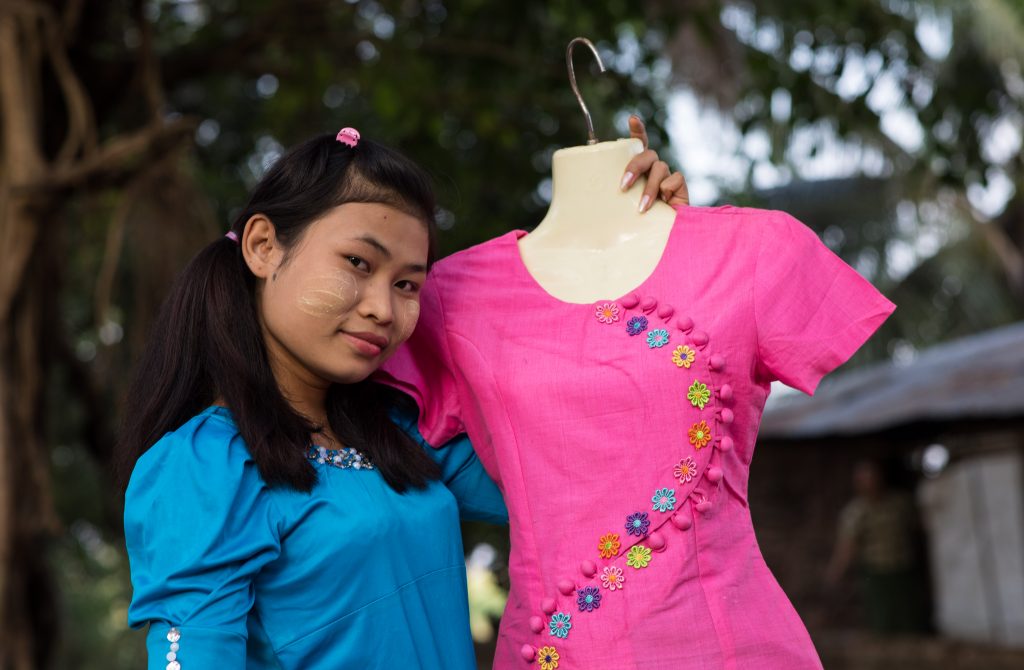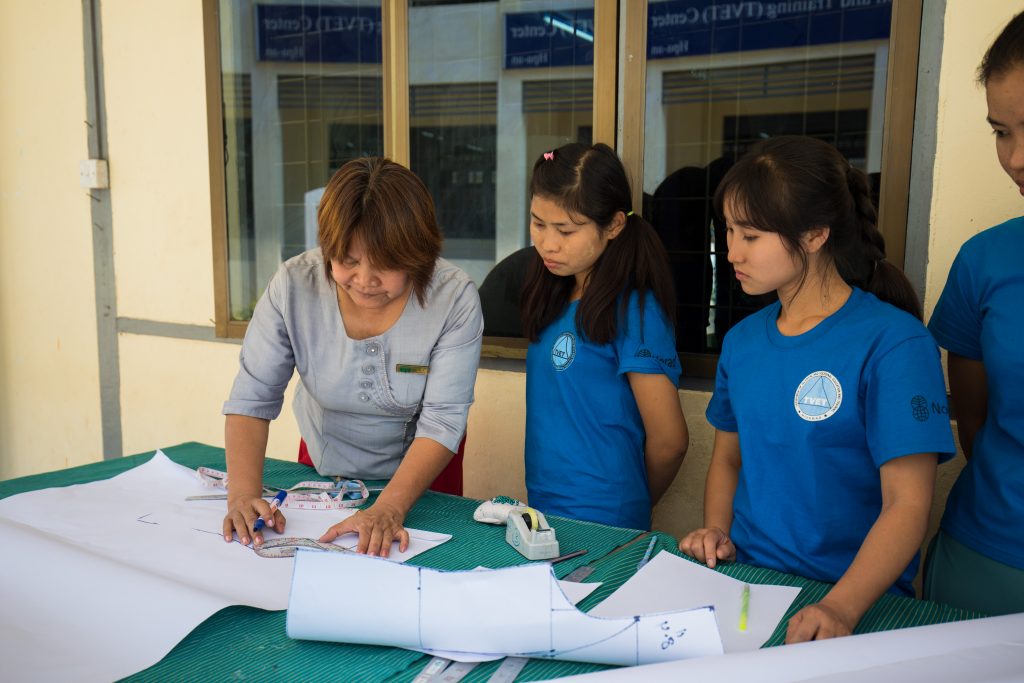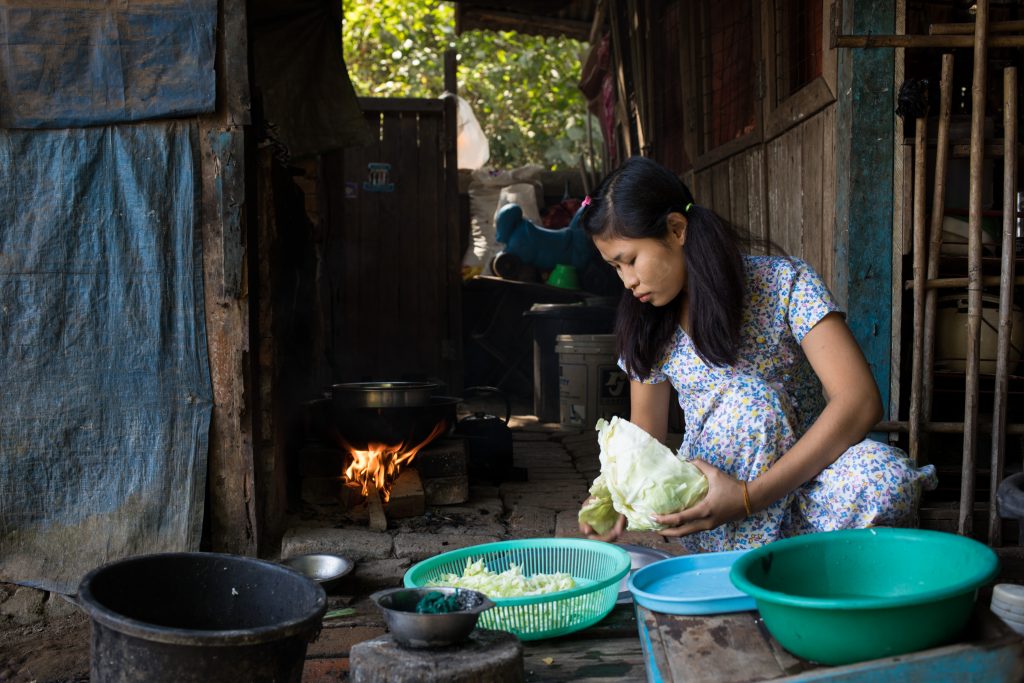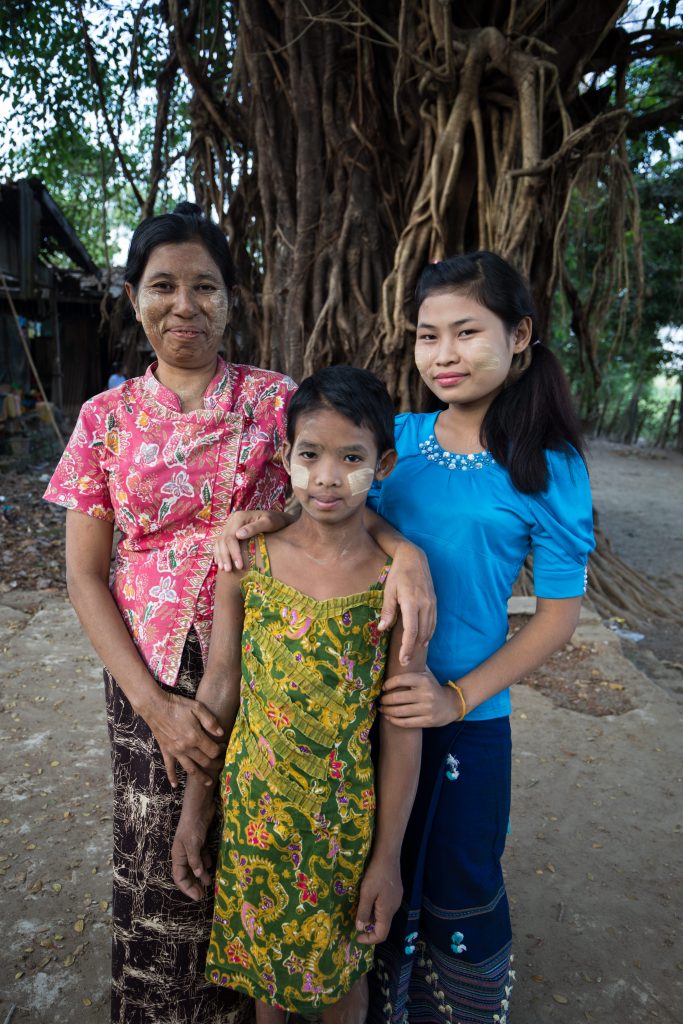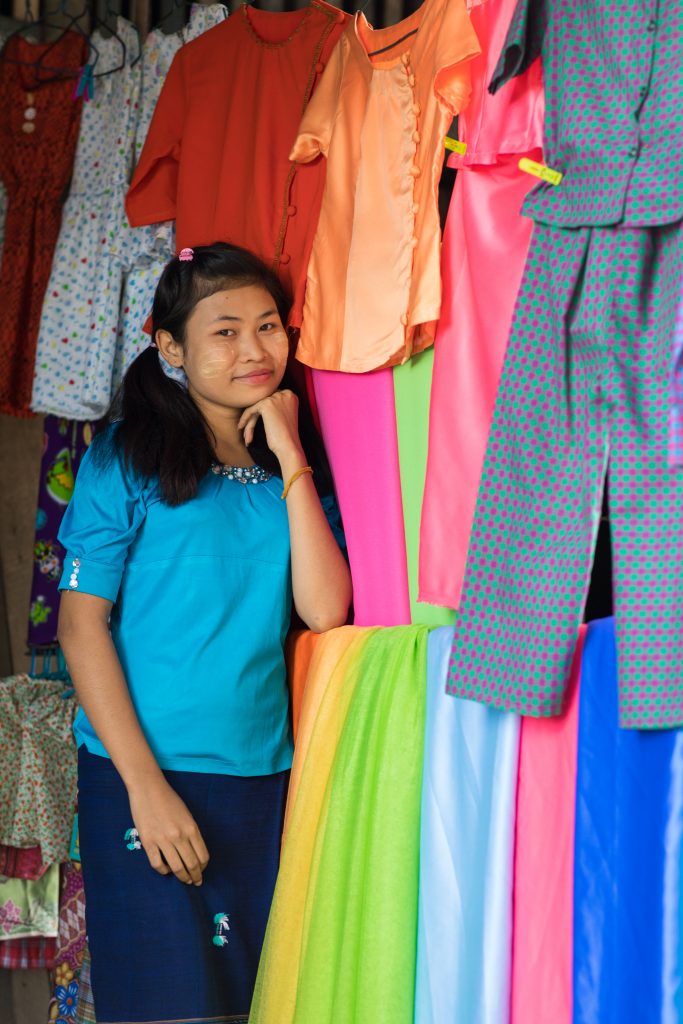It’s a mother who has to tell Naw Paw Wah’s story. The young girl cannot tell it herself because she is deaf and was asked to leave school the same year she began. She can not read or write, but Naw Paw Wah has found a way. In her memory, ADRA will always mean the ‘rescue’.
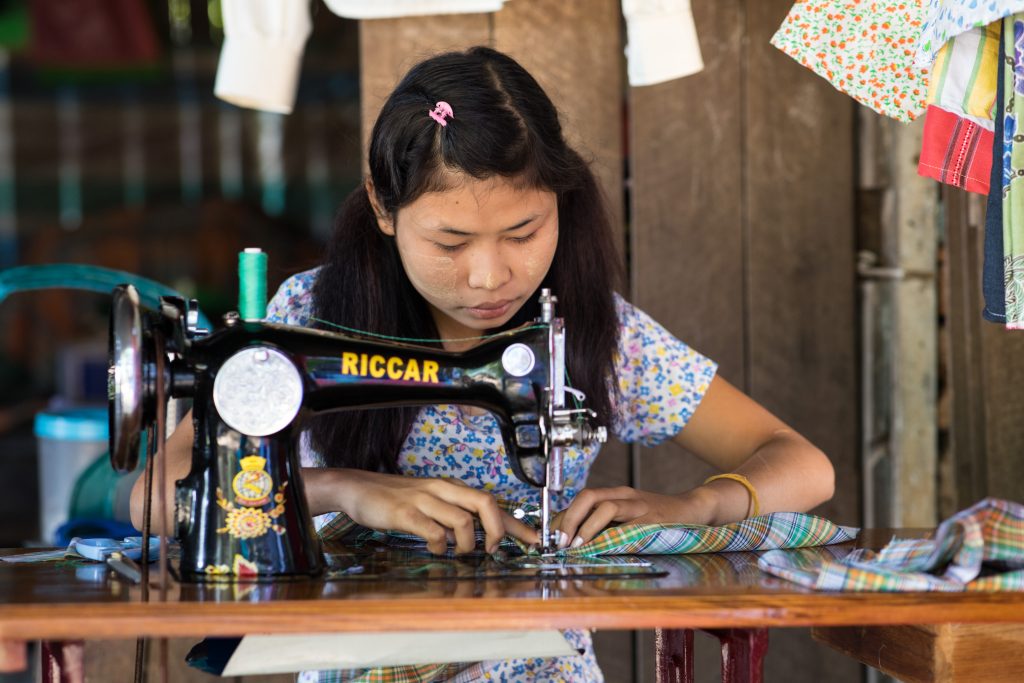
Naw Paw Wah was born a normal healthy baby girl without any disabilities. When she was still very young, for several days she had a high fever. When the fever broke the little girl could not talk anymore. After a while, the family understood that she had lost her hearing. Together they developed sign language in order to communicate with each other.
At six years old, the mother thought it was time for her to start school, like the other kids in the village. The mother had expectations that this would go well, but it did not work the way she hoped. When the teachers found out that Naw Paw Wah was deaf, they told the mother would benefit more by staying at home and learning to clean. The only impression she received in these first important childhood years was by a teacher who spent some time teaching her how to write her name, her mothers name and her fathers name.
The mother was struggling. When the father died, she did not have money to buy somewhere to live, so they had to rent a very simple cabin from a man in the village. She occasionally received cheap vegetables that she sold on the market, but in order to buy the goods she had to borrow money. Meanwhile, the mother developed HIV.
Since Naw Paw Wah was small, she showed great interest in making clothes. If she had an old scarf or some fabric pieces, she could make patterns and cut and sew doll clothes for the dolls she played with. When her little sister was born, Naw Paw Wah danced for the little baby. She still has this with her everyday: sew and dance.
At a support group meeting for HIV patients, the mother heard something interesting. Someone spoke of a new vocational training offered in the city. What really piqued the Mother’s interest was the information about who was encouraged to apply. This was quite unusual and almost impossible to believe. The school welcomed teens with special needs and disabilities. Something similar, mother had never heard. Would someone accept her daughter? Teach her? Could she really go to a school? She dared not believe it.
Furthermore, she learned that in order for the poorest to be able to go and study there that tuition fees were free and support would also be provided for transportation costs between school and home. Could it be?
The landlord sent a written recommendation for when the mother and daughter went to the new school to talk to the teacher who taught sewing. The teacher seemed skeptical and asked many critical questions thought mother. She did not believe what was going on. But a few days later, they received the message that Naw Paw Wah had been accepted by the school. She was really welcome! The mother and daughter cheered!
But how should she come to school everyday? Mother had to take every opportunity for small jobs in order to have enough money or they would lose too much. By the river there lived a man who had a boat.
Occasionally he would transport people across the river to they city where the school was. From the other side she would have to ride a moped taxi. This worked because ADRA’s project also helped students with their travel expenses for the most vulnerable.
“My daughter has always worked hard”, says mother. “She has washed, fed, kept order and made food, as she went to the vocational school, she also worked very hard many evenings. She would keep sewing even though it was dark and hard to see”
But there is one thing that mother still seems overwhelmed by, “I never thought that we would ever be able to open a store here at our place. I thought she might want to learn how to sew her own clothes, maybe a little for the family or get work with someone else, but I never thought she would come so far that she could open her own store! That she even had her own sewing machine was never in my thoughts or dreams. I am so greatful to ADRA for this and so happy!”
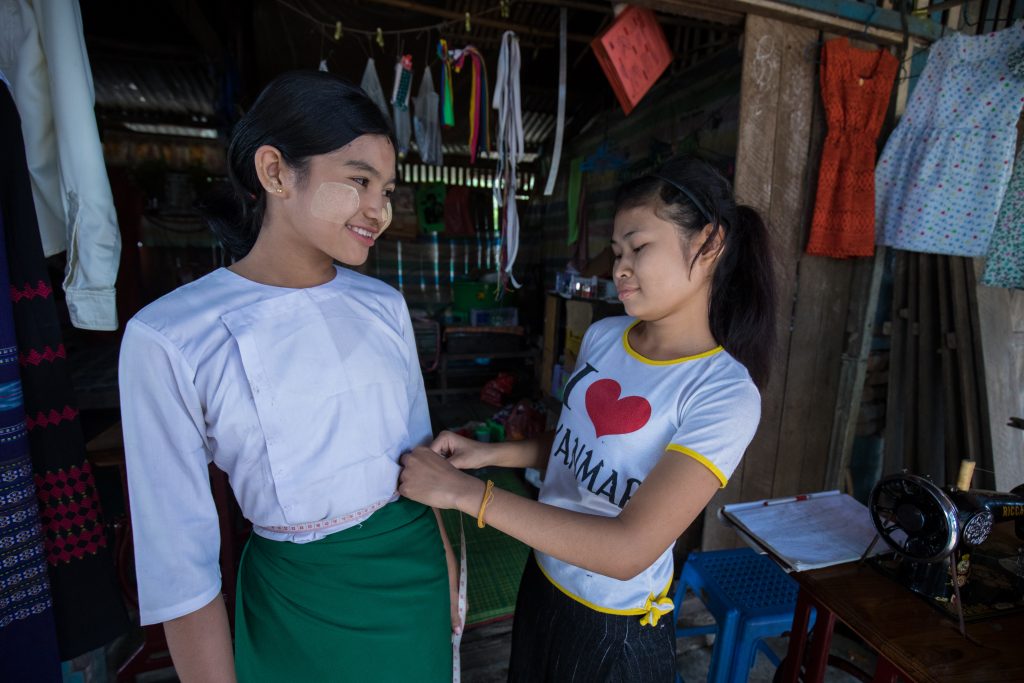
Now mother no longer needs to struggle with hard days. Instead, she helps her daughter do their business. She has walked around the district to every house and told them about the shop and her daughter who is good at sewing. Now the neighbours know that Naw Paw Wah can make blouses, shirts and skirts. People can come and get fitted so that the clothes will fit them perfectly. Sometimes people will bring a picture on a phone or in a magazine and Naw Paw Wah sews it. People trust her to such an extent that they sometimes ask her to evaluate what she thinks looks the best for them. People in the neighbourhood have learned that the young, deaf and dumb girl dancing and sewing has good taste.
The little family has set goals for the next few months. If the shop still goes as it is now and they manage to save, they want their own place to live so they don’t have to rent anymore. The new location will be closer to the main road to reach new customers. Naw Paw Wah knows safety with her family and wants her mother and sister around. “To think I don’t have to borrow money anymore,” said the mother enthusiastically. Thanks to her daughters’ schooling, she is freed from what she calls ‘loan sharks’. Now, mother is cooking food and cleaning the house, she talks with the customers and helps sew buttons and make buttonholes.
In the end, the mother has become solemn and serious saying “I would like to thank the people of Norway who help ADRA’s work. Not just an ordinary thankyou, but a special thankyou. We would have never done all this without ADRA, Norad and the people in Norway. If something happens to me, my daughter will be ready. This little shop and business is her future. You have given my daughter the opportunity to live in life.” What’s bigger than that?
Written by: Gry Haugen, ADRA Norway
Photo: © 2018 ADRA | Frank Spangler


